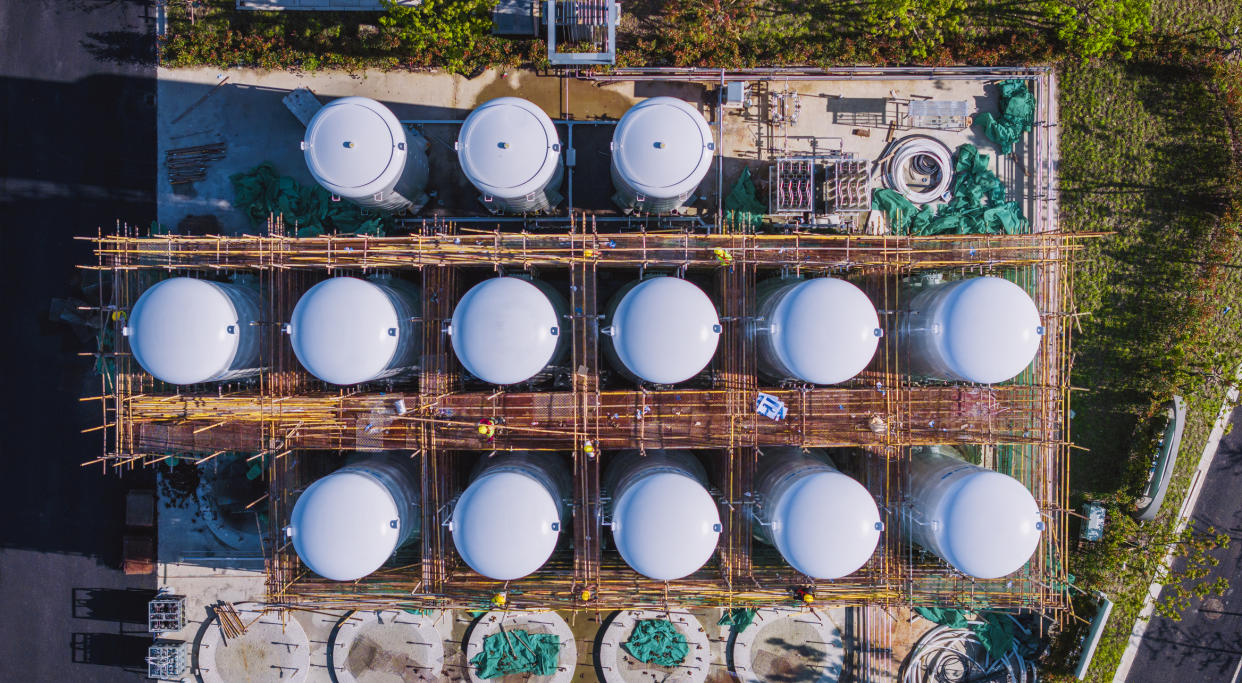Why Biden's new hydrogen hubs could be 'boon or boondoggle' for the climate

Hydrogen might be the next big thing in renewable energy. Or it might be a bust. Either way, we’re about to find out.
That’s because the Biden administration last week announced plans to create seven regional hubs around the country to make and use hydrogen, The New York Times reported. The $7 billion project aims to ramp up production of “a clean-burning fuel” that doesn’t produce the same climate-altering emissions as carbon-based energy sources like coal and oil. “We’re going to build a clean energy future here in America, not somewhere else,” President Joe Biden said.
But “clean” hydrogen can have environmental drawbacks, Rebecca Leber wrote for Vox, “especially when the fossil fuel industry gets involved.” Hydrogen is “a very promising energy source” but the process that produces the fuel “can either be polluting or clean.” Most hydrogen produced today comes from fossil fuels. This means that “there’s a way to produce hydrogen that worsens climate change.”
That has made the push to expand hydrogen production “a lightning rod for controversy,” CNBC reported. One “ideological fault line” has emerged: One side argues that focus should be on carbon emissions reduction “from the outset” — which would mean bypassing fossil fuels for production — while others make the case that “the best foundation is the one that gets built and scaled quickly.” That debate has serious implications: “There’s a lot of money on the line.”
'Only clean on paper'
At the moment, Inside Climate News reported, experts say the government “has yet to make enough information public about the hydrogen hubs” to determine whether climate guardrails are in place. To make sure that hydrogen production is actually clean, the energy must come from a low-emissions source like wind or solar. But at least three of the new hubs will use natural gas to produce hydrogen, which critics say means “could fail to meaningfully reduce emissions” — and perhaps even increase them.
That news has provoked something of a backlash. The Sacramento Bee reported that a dozen University of California faculty sent a letter to Gov. Gavin Newsom (D) that a planned California hydrogen hub “would drive substantial carbon pollution increases in California and the U.S.” The scientists warned that the production would be “only clean on paper.” The CEO of the public-private company that will operate that hub said it is important to scale up production as quickly as possible. “How we do this is being discussed by many,” he said, “but we all share the same fundamental goal.”
“Hydrogen is a crucial climate solution,” Sammy Roth argued at the Los Angeles Times. But it’s also a distraction. That’s because there are a variety of ways to reduce carbon emissions — everything from “renewable energy to public transit to eating less meat” can help us burn fewer fossil fuels. It’s a waste of time to argue about “whether we’re following the one true path.” And the new hubs are just one part of the climate push mounted under Biden’s Inflation Reduction Act. “Hydrogen definitely isn’t the only thing we’re spending money on.”
'An opportunity to electrify'
Others are cautiously optimistic, Big Country News reported. While using fossil fuels to produce hydrogen is not what environmentalists want to see, one Sierra Club representative said the new hubs are an “an opportunity to figure out how to electrify or clean up really hard to abate sectors of the economy” like transportation and manufacturing. The government’s hydrogen investment could be a “momentous decision, if done right.”
That’s the big question, isn’t it? “There are so many ways hydrogen can go wrong,” the Union of Concerned Scientists’ Julie McNamara told States Newsroom. One key decision left to be finalized: An Internal Revenue Service ruling on what additional projects will be eligible for a new hydrogen tax credit under the Inflation Reduction Act. Environmentalists are pushing hard on the issue, saying it “could be the difference between a boon and a boondoggle” — and determine whether hydrogen is truly a clean, renewable energy for a healthier climate future.

